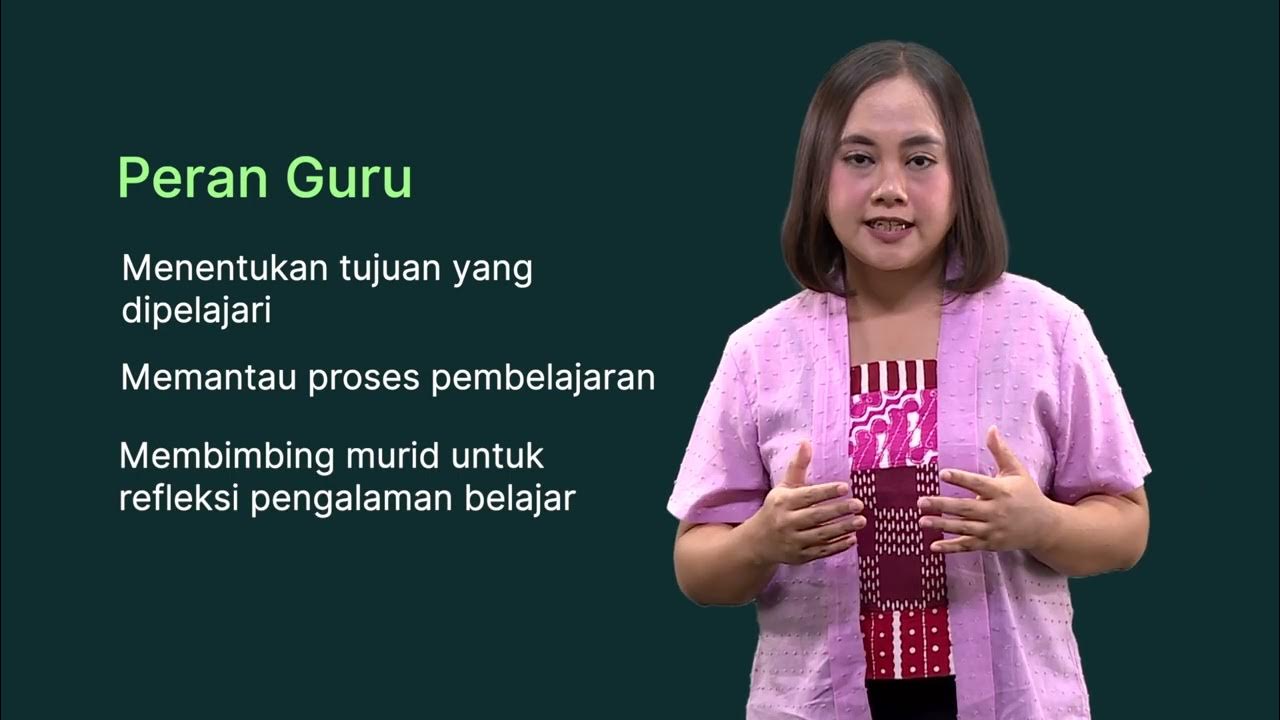LU 3 - 1. Kodrat Keadaan
Summary
TLDRThis educational video script emphasizes Ki Hajar Dewantara's philosophy of education, focusing on 'kodrat keadaan' (the nature of circumstances). It explores two key aspects: 'kodrat alam' (natural circumstances) and 'kodrat zaman' (circumstances of the times), highlighting their significance in shaping effective teaching methods. The script stresses the importance of contextual learning that aligns with students' environments and the ever-evolving demands of the modern world. Teachers are encouraged to adapt their methods to cultivate critical thinking, creativity, and collaboration in students while preserving the local cultural wisdom of Indonesia. The video closes by urging educators to reflect on their practices and align with these principles for student development.
Takeaways
- 😀 Kodrat keadaan (natural state) in education consists of two elements: kodrat alam (nature) and kodrat zaman (era).
- 😀 Kodrat alam refers to the environment where students live, and the education should connect them to their context rather than distance them from it.
- 😀 Teachers should use contextual learning, adapting the material to the local environment, such as teaching students in farming areas about sustainable agricultural practices.
- 😀 Kodrat zaman reflects the dynamic nature of education, adapting to changes over time, such as the shift from post-independence education to the current demands of the 21st century.
- 😀 Teachers must be adaptable to changes in society, including technology, to prepare students for critical thinking, creativity, collaboration, and communication.
- 😀 The rapid advancement of technology requires educators to be mindful of how it affects the way students learn and interact.
- 😀 As educators, it's important to ensure that learning aligns with 21st-century competencies, moving beyond traditional lecture-based teaching methods.
- 😀 The increasing flow of external influences requires educators to help students develop critical thinking skills to filter and respond to information effectively.
- 😀 The cultivation of local wisdom in education is crucial for students to make wise decisions and retain a strong cultural identity in the face of global changes.
- 😀 Ki Hajar Dewantara's principles of 'trikon'—continuity, convergence, and concentricity—can guide educators in integrating cultural values with global educational trends.
Q & A
What is the main focus of the module mentioned in the transcript?
-The main focus of the module is on understanding how to accompany students holistically and comprehensively, particularly in the context of the natural laws (kodrat keadaan) and how these influence education.
What are the two aspects of kodrat keadaan (the natural laws) mentioned in the script?
-The two aspects of kodrat keadaan mentioned are 'kodrat alam' (natural laws related to the environment and surroundings) and 'kodrat zaman' (natural laws related to the times or the era).
How does kodrat alam (the natural environment) affect education?
-Kodrat alam affects education by emphasizing that the learning context should align with the students' environment. For example, if students live in a farming community, their education should connect with agricultural practices rather than irrelevant topics.
How does the script suggest that educators can adapt to kodrat alam?
-Educators are encouraged to provide contextual learning that links academic content to the students' local environment. For example, teaching environmental conservation through practices that are relevant to the students' community, like caring for rubber trees in a farming context.
What is the role of the teacher in relation to the students' learning sources?
-The teacher is seen as a facilitator who connects students with learning sources, both from their local environment and digital platforms, helping them relate educational content to their lived experience.
What does kodrat zaman (the laws of the times) refer to in the context of education?
-Kodrat zaman refers to the dynamic nature of education that evolves with the times. It highlights how educational content and methods must adapt to changing societal conditions, such as technological advancements and shifting cultural contexts.
Why is it important for educators to adapt to kodrat zaman?
-It is important because the rapid changes in technology and society impact how students learn and interact with the world. Educators must help students develop critical skills that are relevant to the 21st century, like creativity, collaboration, and critical thinking.
What does the script say about the influence of external information and how educators should respond?
-The script emphasizes that educators cannot block or reject external information, as it is readily available. Instead, they should help students develop critical thinking skills to navigate and respond to the influx of information in a wise and responsible manner.
How does Ki Hajar Dewantara suggest dealing with the influence of external cultural and informational sources?
-Ki Hajar Dewantara suggests that external influences should be filtered through the lens of local cultural wisdom, allowing students to absorb beneficial ideas while maintaining the integrity of local values and identity.
What is the role of local cultural wisdom in shaping education according to the script?
-Local cultural wisdom plays a vital role in ensuring that education remains grounded in values that reflect the students' cultural context. This helps to maintain a balance between global influences and local traditions, fostering an education that is both relevant and respectful of the local culture.
What are the three principles (asas trikon) proposed by Ki Hajar Dewantara for guiding educational change?
-The three principles (asas trikon) are: 'Continue' (continuity in cultural development), 'Convergent' (the convergence of world cultures toward human unity), and 'Concentric' (maintaining a strong local identity while interacting with global culture). These principles ensure that Indonesian culture progresses without losing its unique characteristics.
What key reflection does the script leave for educators at the end?
-The script asks educators to reflect on whether they are teaching in a way that aligns with the natural laws (kodrat keadaan) of the students, and how they can help students tap into their strengths and potential through relevant, contextual learning.
Outlines

此内容仅限付费用户访问。 请升级后访问。
立即升级Mindmap

此内容仅限付费用户访问。 请升级后访问。
立即升级Keywords

此内容仅限付费用户访问。 请升级后访问。
立即升级Highlights

此内容仅限付费用户访问。 请升级后访问。
立即升级Transcripts

此内容仅限付费用户访问。 请升级后访问。
立即升级5.0 / 5 (0 votes)






